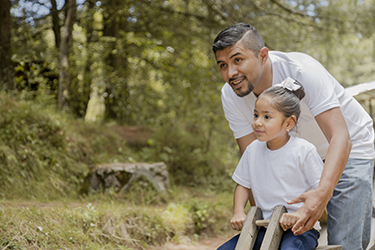Vulnerable communities experience the most inequities, from living in areas most likely to flood due to climate-driven weather to living next door to polluting factories and power plants.
APHA’s Center for Climate, Health and Equity recently awarded five Student Champions for Climate Justice grants. The goal is to foster discussions on campuses and in communities about the impact of climate change on human health, especially for people in disadvantaged neighborhoods.
The center gave $500 each to five student-run public health groups to develop programs on climate and social justice. The groups are at the Michigan State University School of Public Health, University of Hawaii’s John A. Burns School of Medicine, University of South Florida, Western Illinois University and the Louisiana State University Health Science Center in New Orleans.
“Students in their late teen years and early 20s are not responsible for the climate crisis they find themselves in, but have to deal with negative health impacts that are only getting worse,” Katherine Catalano, MS, deputy director of the Center for Climate, Health and Equity, told The Nation’s Health. “Many college students are already committed to effecting change in the climate justice movement, and this program allows them to share their knowledge, experience and passion with their peers and communities in order to build collective power and address local health disparities.”
Throughout the fall semester, the student groups will be working on their projects and presentations.
In mid-September, Michigan State University’s Student Advisory Board held “Air Quality Awareness Week” events to raise awareness of air pollution and its impacts on health in a Flint, Michigan, community. Students organized a webinar featuring a panel of air quality experts, created a virtual advocacy toolkit and held a day of community service at the Flint Farmers’ Market.
Students at the University of Hawaii’s John A. Burns School of Medicine are holding climate change and health symposiums and will require their classmates who are first- and second-year medical students to attend. The symposium discussions are focused on the inequitable health harms to marginalized communities that result from climate change.
The Activist Lab at the University of South Florida College of Public Health has several climate justice projects happening. Since 2019, the lab has supported “Advocation: Change It Up,” a Spotify podcast exploring public health topics. A coming podcast will focus on Latinos who developed cancer likely due to environmental causes. In addition, climate justice workshops for middle, high school and undergraduate students will be held and include a discussion with a panel of experts.
Students at Western Illinois University in Macomb, Illinois, are focusing on the physical and mental health impacts of extreme heat on vulnerable populations. They are seeking 1,000 signatures in McDonough County on a petition to add more health-equity support to Macomb’s climate policy resolution. They will present the petition to Macomb’s mayor and city council. The students also plan a “Walk for Climate and Health” event and a panel discussion on climate justice.
Finally, the Louisiana State University Health Sciences Center in New Orleans will hold an interactive art show featuring diverse artwork related to climate change by local artists. In addition, nonprofit Louisiana organizations working on climate issues will share their efforts with students and the greater community.
For more than three years, APHA’s Center for Climate, Health and Equity has awarded Student Champions for Climate Justice grants and welcomes Biogen as a sponsor this year. The center also supports other initiatives and events that encourage students to take action on climate.
The 2023 Student Champions for Climate Justice awardees will be featured on APHA’s social media. Follow @publichealth and #ClimateChangesHealth on Twitter and Instagram to follow their events.
Photo: APHA’s Center for Climate, Health and Equity recently awarded five grants to student groups. The students are furthering discussions on the importance of a healthy environment for individuals and families. (Photo by Fernanda Reyes, courtesy iStockphoto)